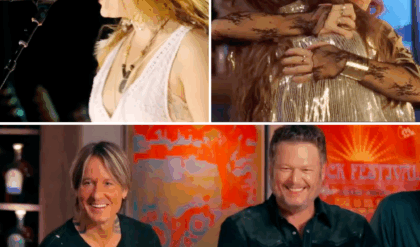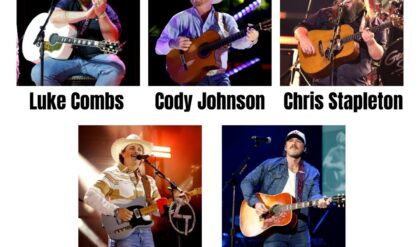In a stunning announcement that has sent shockwaves through the global community, Elon Musk, the visionary entrepreneur behind Tesla, SpaceX, and X (formerly Twitter), has been nominated for the 2025 Nobel Peace Prize. The nomination, put forward by Branko Grims, a Slovenian member of the European Parliament, celebrates Musk’s unyielding commitment to free speech and his groundbreaking efforts to connect the world in ways that foster understanding, dialogue, and stability. But this isn’t just about one man’s bold ideas—it’s the story of a relentless innovator who has redefined humanity’s potential, turning science fiction into reality and challenging the status quo to build a more peaceful, interconnected future. What makes this nomination so remarkable? It’s not a single act of diplomacy or a treaty signed in a gilded hall, but Musk’s audacious vision of technology as a bridge to peace. As we delve into his extraordinary journey, we’ll uncover the profound reasons why this South African-born trailblazer truly deserves the world’s highest accolade for harmony.
Elon Reeve Musk was born on June 28, 1971, in Pretoria, South Africa, into a world on the brink of transformation. The son of a model mother, Maye Musk, and an engineer father, Errol, young Elon grew up in a household buzzing with intellectual curiosity. South Africa in the 1970s and 1980s was a powder keg of apartheid-era tensions, where racial divisions and political unrest cast long shadows over daily life. From an early age, Musk showed an uncanny knack for problem-solving. At just 10 years old, he taught himself to code on a Commodore VIC-20 computer, creating a video game called Blastar that he sold for $500—a princely sum for a kid. This early brush with technology wasn’t mere child’s play; it was the spark of a mind that would one day propel humanity toward the stars and stitch together a fractured digital landscape.
By his late teens, Musk’s restless spirit led him to flee the stifling politics of his homeland. At 17, he emigrated to Canada, leveraging his mother’s Canadian roots, and soon crossed the border to the United States, enrolling at the University of Pennsylvania. There, he juggled dual degrees in physics and economics, fueling his dual passions for the universe’s mysteries and the mechanics of markets. But Musk wasn’t content with academia’s ivory towers. In 1995, he dropped out of a Stanford PhD program after just two days, convinced that the internet revolution demanded his immediate attention. Founding Zip2, a software company that provided online city guides for newspapers, Musk poured his energy into building tools that connected people across vast distances. The company sold for nearly $300 million in 1999, netting Musk his first fortune at age 28. This windfall fueled his next venture: X.com, an online payment system that evolved into PayPal, revolutionizing e-commerce and earning him over $180 million when eBay acquired it in 2002.
These early triumphs were more than financial coups; they were Musk’s first forays into democratizing information and commerce, laying the groundwork for a world where barriers to connection crumbled. Yet, true to his contrarian nature, Musk didn’t rest on his laurels. He funneled his PayPal proceeds into audacious dreams: colonizing Mars to ensure humanity’s survival and combating climate change through sustainable energy. In 2002, he founded SpaceX, a rocket company aimed at slashing the cost of space travel. The early years were brutal—three failed launches in 2008 nearly bankrupted the firm, leaving Musk on the verge of ruin. But perseverance paid off. The fourth Falcon 1 rocket soared successfully, and today, SpaceX’s reusable Falcon 9 boosters have launched thousands of satellites, including the Starlink constellation that blankets the globe in high-speed internet.
Parallel to SpaceX, Musk took the reins of Tesla in 2004, transforming a fledgling electric car startup into a juggernaut of green innovation. Tesla’s Roadster in 2008 wasn’t just a vehicle; it was a manifesto against fossil fuel dependency, proving that electric cars could be fast, sexy, and scalable. Under Musk’s leadership, Tesla scaled production exponentially, introducing the Model S, Model 3, and Cybertruck, which have collectively sold millions of units worldwide. By 2021, Tesla’s market value eclipsed a trillion dollars, making it the most valuable automaker on Earth. This wasn’t mere business acumen; it was a crusade against the resource wars that have plagued humanity for centuries. Oil scarcity has ignited conflicts from the Middle East to Africa, but Musk’s vision of a battery-powered future promises to wean the world off petroleum, reducing geopolitical flashpoints and fostering energy independence for nations large and small.
As Musk’s empire grew, so did his influence on global peace. Enter Starlink, SpaceX’s ambitious satellite internet network launched in 2019. Comprising over 6,000 low-Earth orbit satellites as of 2025, Starlink delivers broadband to remote corners of the planet—from Alaskan fishing villages to Saharan nomad camps. But its true peacekeeping power emerged amid chaos. When Russia invaded Ukraine in February 2022, Ukrainian forces faced a communications blackout as Russian forces targeted cell towers and fiber lines. Musk, responding to urgent pleas from Ukrainian officials, activated Starlink terminals overnight. Thousands of dishes were airlifted in, providing unbreakable connectivity for troops, civilians, and journalists alike. Drones stayed aloft, artillery coordinates flowed, and citizens broadcast atrocities to the world, galvanizing international support. Starlink didn’t just sustain Ukraine’s defense; it amplified voices in the fog of war, turning information into a weapon against aggression.
Critics have pointed to controversies—Musk briefly restricted Starlink’s use near Crimea to prevent escalation, drawing ire from all sides—but the net effect was undeniable. In a conflict where disinformation reigns, reliable access to unfiltered truth became a lifeline. Starlink has since expanded to aid in disaster zones: during the 2023 Turkey-Syria earthquakes, it reconnected hospitals and rescue teams; in Gaza’s besieged enclaves, it has smuggled signals past blockades, allowing aid workers to coordinate and families to reach loved ones. By bridging digital divides, Starlink isn’t just about bits and bytes; it’s about empowering the marginalized, preventing isolation-fueled extremism, and knitting societies into a global tapestry where empathy can flourish.
Yet, if Starlink is Musk’s sword in the digital arsenal, then X is his shield for the soul of democracy. In October 2022, Musk acquired Twitter for $44 billion, rebranding it X with a pledge to restore it as a “digital town square.” The platform had devolved into an echo chamber under previous management, rife with shadow-banning and algorithmic biases that stifled dissent. Musk’s Twitter Files, a series of internal document releases coordinated with journalists like Matt Taibbi and Bari Weiss, exposed how U.S. government agencies pressured the company to censor content—from COVID-19 treatment discussions to the New York Post’s Hunter Biden laptop story. These revelations weren’t abstract; they highlighted a chilling erosion of free expression, the very cornerstone of peaceful societies.
Musk’s overhaul of X transformed it into a bastion of open discourse. He slashed content moderation teams, reinstated banned accounts (including those of controversial figures), and introduced community notes to crowdsource fact-checking. The result? A surge in user engagement, with billions of impressions on topics from climate policy to election integrity. Free speech, Musk argues, is the oxygen of peace—without it, grievances fester into violence. The 2021 Nobel Peace Prize awarded to journalists Maria Ressa and Dmitry Muratov for defending press freedom underscores this: expression isn’t a luxury; it’s a bulwark against tyranny. Under Musk’s stewardship, X has hosted real-time dialogues during crises, from Iran’s 2022 protests to the 2024 U.S. elections, allowing citizens to challenge power directly and peacefully.
This brings us to the heart of the nomination: Branko Grims, a staunch advocate for civil liberties, lauded Musk’s “adamant defense of dialogue and free speech” in a polarized era. Grims, who submitted the petition to the Norwegian Nobel Committee, sees Musk’s work as a antidote to authoritarianism, echoing the committee’s own criteria for prizes that advance “fraternity between nations.” It’s a nomination that builds on a 2024 bid by Norwegian MP Marius Nilsen, who similarly hailed Musk’s role in fostering global connectivity. But what elevates this beyond politics is the synergy of Musk’s endeavors. Tesla combats the environmental triggers of conflict; Starlink ensures voices from war-torn regions aren’t silenced; X amplifies those voices to build international solidarity. Together, they form a triad of technological diplomacy, more potent than any summit.
Of course, no hero’s tale is without thorns. Musk’s nomination has ignited fierce debate. Detractors decry him as a provocateur—his endorsements of political figures like Donald Trump, his memes mocking world leaders, and X’s occasional amplification of misinformation have drawn accusations of recklessness. Environmentalists grumble about Tesla’s labor practices in mining battery materials, while geopolitics hawks question Starlink’s neutrality in conflicts. Even the Nobel Committee, known for eyebrow-raising choices like Henry Kissinger in 1973 or Barack Obama in 2009 (awarded prematurely for “efforts” rather than results), might balk at Musk’s brash persona. Yet, history favors the disruptors. Alfred Nobel himself was a dynamite magnate, vilified before his prize redeemed his legacy. Musk, too, wears controversy as armor, pushing boundaries where others fear to tread.
The remarkable reason Musk deserves this prize? It’s his holistic assault on the root causes of war: disconnection, suppression, and scarcity. In an age of hybrid threats—cyber blackouts, fake news barrages, climate refugees—Musk’s innovations don’t just react; they preempt. Imagine a world where every refugee has Starlink to document injustices, every dissident tweets unhindered on X, and every city hums on Tesla grids, free from oil embargoes. This isn’t utopian fantasy; it’s Musk’s blueprint, already half-built. His journey from a bullied Pretoria schoolboy to Mars-bound mogul embodies the Nobel ethos: turning human ingenuity toward brotherhood.
As the Nobel Committee deliberates in Oslo this fall, one thing is clear: Elon Musk isn’t waiting for laurels. With Neuralink’s brain implants poised to merge minds with machines, xAI charting ethical AI frontiers, and Starship rockets eyeing lunar bases, he’s already engineering peace on a cosmic scale. Whether he claims the gold medal or not, Musk’s legacy is etched in silicon and stardust—a testament that true peacemakers don’t negotiate tables; they redesign the world. In nominating him, Branko Grims didn’t just honor a billionaire; he saluted a builder of bridges across divides we once thought unbridgeable. The journey continues, and humanity is the richer for it.





